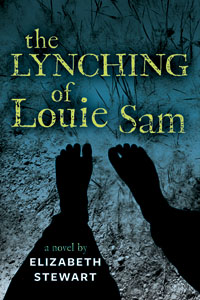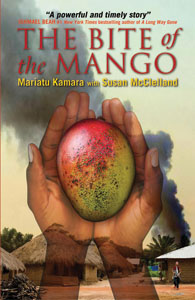Blue Gold (32 page)
Authors: Elizabeth Stewart

Workers like Laiping earn less in a month than North American workers do weekly, which is one of the reasons that factory jobs are disappearing in Canada and the United Statesâbecause labor costs are so much lower in places like China. While the factory I've created is fictional, its wages reflect those of higher-end factories operating in the Special Economic Zone of Shenzhen today. I have set the basic wage at 1800 yuan ($290 U.S.) per month, above the legal Shenzhen minimum wage of 1500 yuan ($240 U.S.) per month, which is the highest in China. In Shanghai it is the equivalent of $230 per month, and in Beijing $200.
Migrant workers become refugees of a sort, displaced from traditional family-based culture, and adrift in a makeshift society of isolation, anonymity, and endless striving that for most is ultimately fruitless. After a few years of being worn down by the assembly line, many return to their villages with little to show for the sacrifices they've made, while the disparity between the factory workers and China's burgeoning wealthy classes continues to grow.
In comparison with what happens to Sylvie and Laiping, the cyberbullying experienced by Fiona may seem a relatively minor trauma. But the death of even one young person driven to suicide by the vicious side of social media is too many, and there have been several. Fiona comes out all right. She's a strong girl with a positive self-image, supportive parents, and a core group of loyal friends. But not every young person possesses these buffers.
Am I advocating a boycott of the smartphones, tablets, and laptop computers whose manufacture causes exploitation in China, the Democratic Republic of the Congo, and other countries? Not for a minute. Like millions of people, in every nation on earth, I rely on these devices daily. What I
am
advocating, though, is that informed consumers be able to exercise their right to purchase ethical products that are exploitation-free.
Many groups and individuals are active internationally trying to instil ethical standards that will help the Sylvies and Laipings of the world lead safer and more secure lives. But the issues are incredibly complex. Even those tech companies that have made a commitment to work with their manufacturers to ensure that only conflict-free coltan is used in their products are thwarted by black markets and murky supply chains that make verification difficult. While Hervé Kayembe is an invented character, he and his soldiers are representative of multiple rogue militias that continue to attack villages in the eastern DRC over coltan, because they know they will find lucrative markets for it.
Factory wages and conditions in the Pearl Delta region of southern China have improved somewhat under pressure from certain American tech companies that take their business to manufacturers there; Foxconn, a major player, has promised to raise its basic wage from the current 2200 yuan ($350 U.S.) per month to 4400 yuan ($700 U.S.) per month. Yet many factories have instead relocated to more remote areas of China, where wages are reduced and sweatshops can more easily avoid international scrutiny.
So what can we as consumers do? We can ask our political leaders to enforce legislation requiring manufacturers to ensure that the coltan used in their products is conflict-free. Given that 70 percent of mining companies in the world are listed in Canada, Canadians can educate themselves about the practices of Canadian companies in the DRC, and around the world. Canada has recently joined other nations in introducing legislation that requires mining companies to disclose payments they make to foreign governments. It's a start toward exposing the kind of corruption that sees government-backed soldiers in places like the DRC attacking their own people.
And before making a decision about which brand of cell phone, laptop, or other tantalum capacitorâbased product you or your parents plan to buy, do an Internet search to find out what that company's position is on the use of conflict minerals. If the company outsources manufacturing to factories in China and other countries, what standards does it hold them to? Some tech brands have a better record than others on the use of conflict-free raw materials and on trying to ensure decent conditions for workers. Ask the question, “Did anybody suffer during the making of this product?”

Factory Girls: From Village to City in a Changing China
by Leslie T. Chang (New York: Spiegel & Grau/Random House, 2008).
Â
The Bite of the Mango
by Mariatu Kamara with Susan McClelland (Toronto: Annick Press, 2008).
Â
Ethical Consumer:
www.ethicalconsumer.org.
This British site lists a wide range of products, including electronics, and provides background information on the companies that make them.
Â
MiningWatch Canada:
www.miningwatch.ca
. As the name implies, this group monitors activities of Canadian mining companies in Canada and around the world.
Â
Global Witness:
www.globalwitness.org
. This is an international group that for twenty years has campaigned against human rights abuses that are the result of natural resourceârelated conflict.
Â
And, finally, there's an app for that. Buycott (
www.buycott.com
) allows consumers to use smartphones to scan bar codes on store shelves, and instantly provides details of the manufacturer's record on environmental abuse and human rights violations. The irony is not lost.


ELIZABETH STEWART'S
first young adult novel,
The Lynching of Louie Sam
, was based on the true story of a mob lynching of a Native American teen in 1884. It has received wide acclaim, including the 2013 Notable Books for a Global Society, the International Youth Library's White Ravens Collection 2013, the Skipping Stones Honor Award, the Geoffrey Bilson Award for Historical Fiction, and the John Spray Mystery Award.
During her lengthy career as a screenwriter, Stewart has received multiple awards for her television series scripts for young people, including
The Adventures of Shirley Holmes
and
Guinevere Jones.
She has also written movies for television, among them
Tagged: The Jonathan Wamback Story
, an examination of teen violence based on a true incident, and
Luna: Spirit of the Whale
, which chronicles the transformational effect a stray killer whale off the west coast of Canada has on a First Nations community. Both of these films were nominated for Geminis.
Stewart lives in Vancouver, British Columbia.

I would like to thank the staff at Annick Press for their commitment to bringing important issues such as the ones facing Laiping, Sylvie, and Fiona to the attention of readers worldwide, young, old and in between, and my editors, Pam Robertson and Linda Pruessen, for going into the breach with me once more. Very special thanks to my gentle reader, Ruth Miller, and to Simon Child of the Africa Canada Accountability Coalition, a young man whose intelligence, ethics, and determination are bound to make a difference.
âElizabeth Stewart
More award-winning books from Annick Press
Â

â¢
2013 Notable Books for a Global Society
â¢
White Ravens Collection, International Youth Library, Munich
â¢
Skipping Stones Honor Award
â¢
Geoffrey Bilson Award for Historical Fiction
â¢
John Spray Mystery Award
Â
It's 1884 and 15-year-old George Gillies and his siblings discover the murdered body of a local man. Suspicion immediately falls on a Native teen named Louie Sam. George and his best friend follow a mob of angry townsmen north into Canada, where the suspect is seized and hung. But soon George begins to have doubts.
“Readers will ⦠be held by the mystery right up until the end.”
âBooklist
The Lynching of Louie Sam
by Elizabeth Stewart
paperback $12.95 | hardcover $21.95
Â

â¢
White Ravens Collection, International Youth Library, Munich
â¢
Silver Award Winner, Book of the Year, ForeWord Reviews
